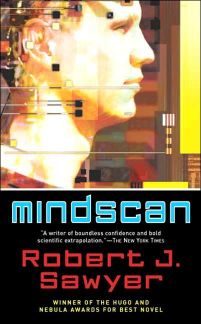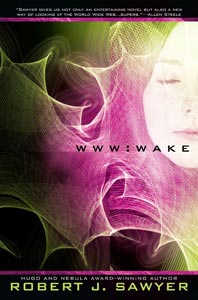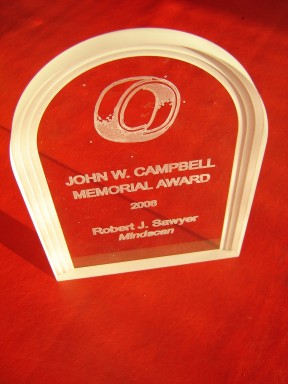Writers make their characters up

Yesterday, as part of my outreach duties as writer-in-residence at the Canadian Light Source synchrotron, I attended a book club meeting; the clubs members -- six very nice women -- had all just read my John W. Campbell Memorial Award-winning 2005 science-fiction novel Mindscan.
At one point, I got asked the inevitable question: who are the characters based on? And to answer that I opened one of their copies of my book and read this little scene, because not only is the answer true, it's also important. Here, Jake Sullivan is oohing and aahing over meeting Karen Bessarian, author of some beloved young-adult novels:
"I can't believe I'm sitting here talking to the creator of Prince Scales."
She smiled that lopsided smile again. "Everybody has to be somewhere."
"So, Prince Scales — he's such a vivid character! Who's he based on?"
"No one," said Karen. "I made him up."
I shook my head. "No, no — I mean, who was the inspiration?"
"Nobody. He's a product of my imagination."
I nodded knowingly. "Ah, okay. You don't want to say. Afraid he'll sue, eh?"
The old woman frowned. "No, it's nothing like that. Prince Scales doesn't exist, isn't real, isn't based on anyone real, isn't a portrait or a parody. I just made him up."
I looked at her, but said nothing.
"You don't believe me, do you?" Karen asked.
"I wouldn't say that, but —"
She shook her head. "People are desperate to believe writers base our characters on real people, that the events in our novels really happened in some disguised way."
"Ah," I said. "Sorry. I — I guess it's an ego thing. I can't imagine making up a publishable story, so I don't want to believe that others have that capability. Talents like that make the rest of us feel inadequate."
"No," said Karen. "No, if you don't mind me saying so, it goes deeper than that, I think. Don't you see? The idea that false people can just be manufactured goes to the heart of our religious beliefs. When I say that Prince Scales doesn't really exist, and you've only been fooled into thinking that he does, then I open up the possibility that Moses didn't exist — that some writer just made him up. Or that Mohammed didn't really say and do the things ascribed to him. Or that Jesus is a fictional character, too. The whole of our spiritual existence is based on this unspoken assumption that writers record, but they don't fabricate — and that, even if they did, we could tell the difference."
Visit The Robert J. Sawyer Web Site
and WakeWatchWonder.com






 Woohoo! A delivery man just dropped off two cartons of the Tor mass-market paperback of my
Woohoo! A delivery man just dropped off two cartons of the Tor mass-market paperback of my 

